Four-time Oscar nominee Edward Norton showcases a benevolent side as folk singer Pete Seeger in A Complete Unknown. Just don’t tell him he’s playing against type.
In 1964, Bob Dylan wrote a letter to a friend in which he admitted to struggling with his sudden fame. In the missive, he mentioned celebrated protest-song writer Pete Seeger, his mentor on the New York folk scene, as one of the few things in his life that still felt untainted by his rapid ascent as a commercial music artist. Seeger, he wrote, represented a gentler side of his own nature that he was desperate to hold onto.
For Edward Norton, this letter was key to understanding Seeger, whom he had been cast to play in James Mangold’s A Complete Unknown. Released in North America on December 25, and already grossing an impressive $59m for Searchlight Pictures at press time, this unconventional biopic charts the turbulent years between the arrival of Dylan (Timothée Chalamet) as a 19-year-old in New York in 1961 and his controversial decision to go electric – much to Seeger’s dismay – at the 1965 Newport Folk Festival.
“It struck me that, with all Bob Dylan went through in that time, he never broke faith with Pete – Newport notwithstanding,” says Norton. “Even if he was paranoid about everybody else at a party having an agenda, if Pete was there he would pick up the guitar and play with him. Dylan viewed him as one of the few pure things in his life, and while he butted up against it artistically at a certain point, I don’t think he ever spiritually lost the deepest depth of love and respect for Pete Seeger.”
Norton’s own admiration for the writer of such hits as ‘If I Had A Hammer’ and civil-rights anthem ‘We Shall Overcome’ pre-dates his deep-dive research for the role.
“If you grew up as an artist, or if you aspired to be an artist in the New York area and east coast, Pete Seeger was like Gandalf,” he says when he meets Screen International in London in mid-January. “It didn’t even matter if you were into folk music. He was one of the oracles because he was an artist-as-activist. A kind of paragon. A figure of an artist as a good person – literally.”
Norton clearly admires Seeger enormously, citing “a connective tissue between my interests and non‑artistic interests that’s very in-line with him”; the actor himself is an environmental activist and, among other social initiatives, advocates for affordable housing. “Pete started the environmental campaign to clean up the Hudson River,” he says. “The idea of someone who saw himself as an instrument of service is fascinating.”
Power of a deadline
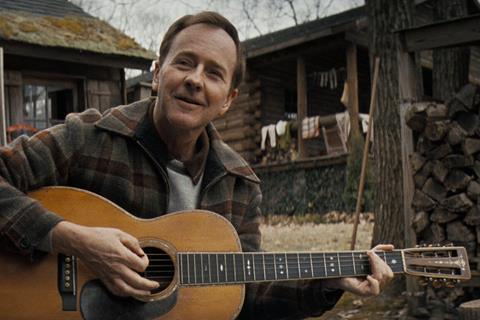
Originally, Mangold had hired Benedict Cumberbatch (a friend of Norton) to play Seeger, but lost the UK actor to a scheduling conflict following SAG-AFTRA strike delays. But coming in as his replacement in January 2024 did not unduly intensify the challenge of portraying Seeger, insists Norton, despite the production requiring its actors to perform live on set.
“If I had no musical grounding playing guitar, I’d have felt a good bit more anxious about getting dialled-in to his music,” he says, adding: “In some ways, sometimes it’s nice to have a deadline. Sometimes it’s exactly what you need.”
The pressure bore fruit in a performance that has already earned Norton a number of award nominations, including supporting actor nods from Bafta, the Screen Actors Guild, the Golden Globes and the Academy Awards. But the details of how he achieved this – mastering the banjo, finding the “strange cadence” of Seeger’s speech, transforming his appearance (even hiring a cosmetic dentist to modify his teeth, according to make-up department head Stacey Panepinto) – is not something Norton likes to discuss.
“I think we’ve gotten into this era a little bit of the snake eating its own tail,” he explains. “It’s like talking about how long you spent in the make-up chair has become part of the way you put a film out, and it’s like, wait a minute, that’s the trick itself. That’s actually the artifice. And as an audience member, I don’t want that. I think actors have gotten enlisted in deconstructing the work before it’s even been seen.”
This is all expressed, it should be said, politely, articulately and with a youthful twinkle that belies Norton’s 55 years. He is not bristling or even batting away unwanted questions. He brings it up in the context of his admiration for Dylan as a more mythical, mysterious figure than Seeger.
“Dylan was so fierce in his defence of not letting you behind the curtain,” says Norton. “Sometimes politely and then sometimes with teeth, he’s such a relentless obfuscator of discussion about the work. There’s something very philosophically profound in that idea of leaving people alone to have their own relationship to a thing, you know?”
With such resistance to revealing his process and choices, Norton realises he must accept that he also cannot exert much control over how others perceive him. For instance, the role of Seeger – a truly benevolent figure described by Mangold as “a folk music version of Fred Rogers” – initially appears singular on the résumé of an actor most readily associated with darker roles, such as those he played in American History X, Fight Club and even, recently, Glass Onion. Mangold himself described it as casting “against type”. But Norton begs to differ.
“If you went through the things I’ve done, it doesn’t hold water,” he demurs with a light chuckle. In Danny DeVito’s 2002 satire Death To Smoochy, he points out, children’s entertainer Sheldon Mopes (aka Smoochy the Rhino) “is the child of Pete Seeger. He sings about not using sugar and he plays a guitar. Smoochy the Rhino is a folk singer for the left!”
He also sees a similar Seeger-ish saintly streak in the role he took for his 2000 feature directing debut Keeping The Faith. “I played a priest who’s giving his life in service,” he observes.
Still, he understands why Mangold and others have that view of him. “I’ve never done things because I felt they reflected me. I’ve done them because the extremity of the thing was interesting to me. The stretch was interesting.”
But that is not so much the case these days, it seems. “I’m just not the same person I was when I was 27 years old. I think if someone asked me to do American History X right now, I don’t have the edge for that.”
Staying selective
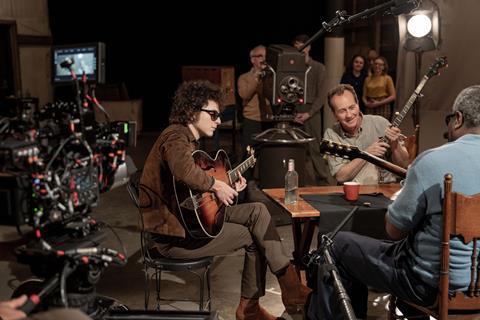
It is perhaps fairer to observe that Norton has become more selective in the roles he has taken. So far this decade, previous to A Complete Unknown, he has only been seen in two Wes Anderson ensembles (The French Dispatch and Asteroid City) and Rian Johnson’s Glass Onion.
“I hope I’m selective,” he responds. “I didn’t do this to turn it into a nine-to-five job. I don’t relate to the thing of turning myself into a clock-puncher. Also, I get a little worn out if I’m seeing an actor all the time. It doesn’t do much for me. The people I still am drawn to go away and come back and kind of hit you.”
Furthermore, he has lost the urge to join a project simply because it offers him a new genre in which to play. “Like when I was in my 20s and my 30s. A heist movie? With Brando and De Niro? [Frank Oz’s The Score]. Why wouldn’t I do that? There can still be those kinds of things, but now I just look for the things that get under your skin.”
Norton accepts that, in today’s market with “the ebbs and flows of people thinking of you for things”, his selective approach may impede the offers he receives. “The way theatrical releasing is done now,” he muses, “they struggle with underwriting adult theatrical films with people they don’t perceive as being able to collaterise off something else they’ve done. And I just have never had any interest in that.”
Of course, the answer is to create your own material, and Norton has indeed produced several of his movies (including 2006’s The Painted Veil and 2009’s Leaves Of Grass) as well as directing himself twice, in Keeping The Faith and then, 19 years later, in Jonathan Lethem adaptation Motherless Brooklyn – the latter of which he also scripted. So can we expect him to slide behind the camera again anytime soon?
“This year, I hope, will be a writing year for me,” says Norton. “I want to sit down and get a couple of things pulled together, and I’m excited about that. It’s going to be a little bit ‘close the door and try to work’.”
Although, he also reveals he has something already written that could provide the ideal reunion with his on-screen mentee Chalamet. Once more, in a sense, Dylan has provided him with inspiration.
“There’s something Timothée and I are sort of mulling on,” says Norton. “We have known each other for a while, and I adored working with him [on A Complete Unknown]. I thought he led the proceedings with such maturity and seriousness of intent and defence of the work.
“It was just great – in every way a kick in the ass to everybody involved. And I think we had a nice analogue to Pete and Bob’s relationship. So I’d love to do something with him again.”




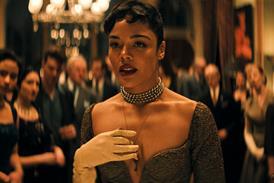







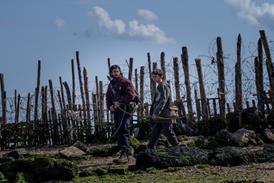

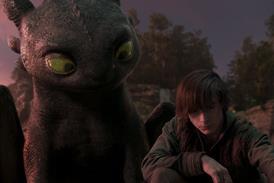




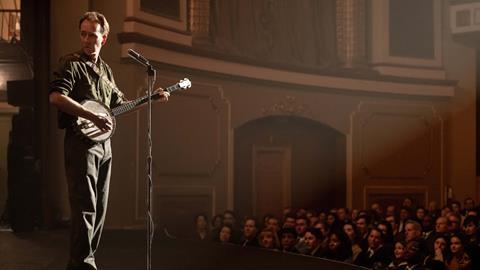






No comments yet